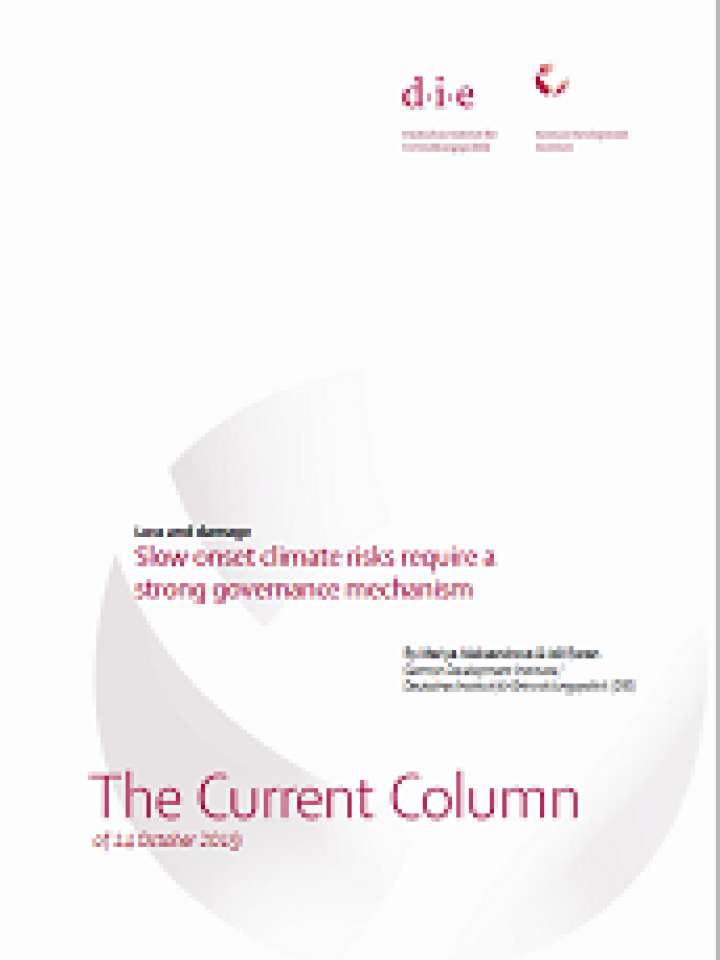Slow onset climate risks require a strong governance mechanism
Weather extremes and rapid onset disasters that result from global warming, like floods, hurricanes and heat waves, occupy increasing space in the media and in policy debates. Slow onset impacts, however, such as sea level rise, ocean acidification, glacial retreat, salinization, desertification, land and forest degradation and loss of biodiversity, also have long-term consequences that cannot be overlooked.
In 2013, Parties to the United Nations Framework Convention on Climate Change (UNFCCC) acknowledged the increasing risks related to climate change and established the Warsaw International Mechanism for Loss and Damage (WIM). The WIM provides technical assistance to developing countries in order to avoid, minimize and address residual loss and damage from extreme weather and slow onset climate events.
Explore further
